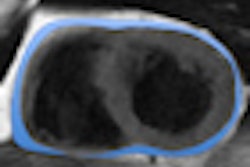With the help of functional MRI (fMRI), researchers have found that depression frequently affects three regions of the brain, which, in turn, can trigger a person's feelings of hate, according to a study published on 4 October in the journal Molecular Psychiatry.
Led by Dr. Jianfeng Feng, professor in the Centre for Scientific Computing and Computer Science at the University of Warwick in the U.K., the study used MRI to scan brain activity in 39 depressed people (23 female and 16 male) and 37 control subjects who were not depressed (14 female and 23 male).
The fMRI examinations revealed significant differences in the brain circuitry of the two groups, with the greatest difference in the depressed patients' so-called "hate circuit," which includes the superior frontal gyrus, insula, and putamen. Other major changes occurred in circuits related to risk and action responses, reward and emotion, attention and memory processing.
The hate circuit was first identified in 2008, when a study found that the circuit appeared to connect those three regions in the brain when test subjects were shown pictures of people they hated. The Warwick research noted that the hate circuit had become disconnected in a significant number of depressed test subjects. The depressed people also seemed to experience other significant disruptions to brain circuits associated with risk and action, reward and emotion, and attention and memory processing.
Feng and colleagues speculated that the uncoupling of the hate circuit could be associated with impaired ability to control and learn from social or other situations, which could provoke feelings of hate toward one's self or others. This, in turn, could lead to an inability to deal with feelings of hate and an increased likelihood of both uncontrolled self-loathing and withdrawal from social interactions.



















